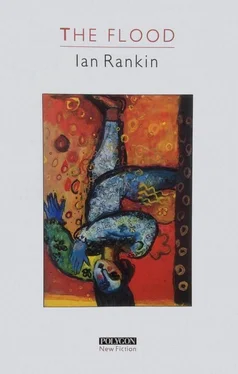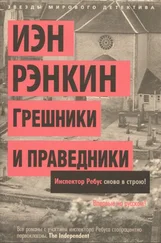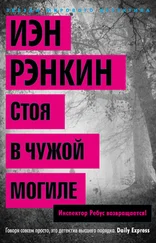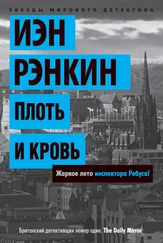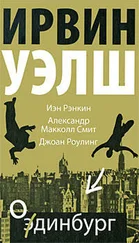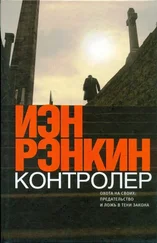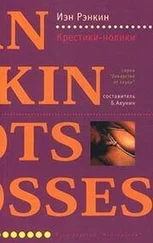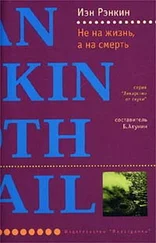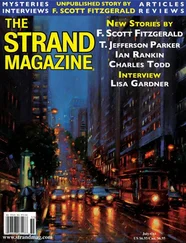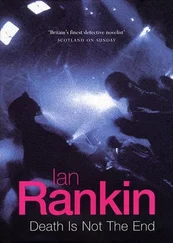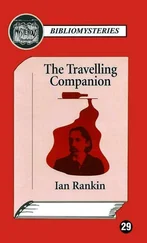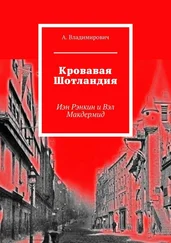‘No, I can’t find the blessed thing. What a nuisance.’ The Reverend Walker closed the bureau sharply, catching many corners of foolscap in the edges of the desk as he did so.
Darroch smiled. It was like a scene from an Ealing comedy. The old man peered at him. ‘A cup of tea? No, something a little stronger I think, in order to celebrate your first parish proper. My goodness, how I remember my first parish, and that wasn’t yesterday.’ He shuffled over to a large cupboard and opened it, producing two crystal glasses from within. In another, smaller cupboard he finally found the whisky. Ice and water would not be necessary: he was of the traditional school. ‘Nor the day before,’ he said, chuckling as he filled the glasses, his hand shaking. He did not spill a drop. Darroch was still standing by the bookcases, hands behind back, face a blur to the old man. ‘Come away and sit down,’ he said. ‘I can’t see you over there. Sit here.’
Iain Darroch sat on the proffered settee. The Reverend Walker handed him a glass before slumping into an armchair, his breath heavy, his tongue glancing around his pale lips.
‘Oh dear,’ he said. He put his glass to his lips, paused, and toasted his visitor. ‘Slainte.’
‘Tour very good health, sir,’ said Darroch, biting on the whisky before it could bite him.
There was a reflective silence. It was a good malt. The aroma of thick peat told Darroch that it came from the west coast, probably one of the Isles, rather than from the Highland glens. There was a good drop still left in his glass, and the old minister did not look particularly mean. Darroch took another sip.
‘And how are you enjoying Carsden so far?’ asked Reverend Walker. Darroch cleared his throat.
‘Very much, sir. Yes, very much. The parishioners seem nice. A bit dour, perhaps, but I think that has a lot to do with economics.’ Reverend Walker nodded.
‘You are quite right. Economics. This used to be a thriving industrial town. Miners settled here from the Lothians and Lanarkshire when coal was discovered. Villages grew from nothing. The pit-owners built rows of houses which became miners’ rows. These streets did not have names, only numbers. There was no room for imagination, you see. I believe some areas of Belfast still operate along the same lines. I was born.in Thirteenth Street.’ The old man spoke as a schoolmaster to an intelligent pupil. ‘I’ve been coming back ever since, watching the village grow, then crumble. Watching decay set in like sugar on a tooth. It has not been pleasant, and the Church has been pretty powerless throughout. The best we’ve managed so far is to write a history of the parish. That was done by one of my predecessors at Cardell. I’ve a copy here somewhere. I must lend it to you. It tells how St Cuthbert settled here for a time and set up his church. It should interest you.’
‘I’d like very much to read it, Reverend Walker.’
‘Call me Alec. Most people do.’
‘Very well. And I’m Iain.’
The old man nodded. ‘Well, Iain,’ he said, ‘will you have another nip?’
Darroch reached his glass over towards his new friend.
‘That’s very interesting about St Cuthbert, Alec’
‘Indeed it is. But then Fife, including Carsden, is a very interesting region. I have several books on the subject. Really, it’s quite a remarkable county. Were you born here?’
‘Crail.’
‘Oh, a glorious place, a really beautiful place. Of course, the East Neuk of Fife and central Fife are two different worlds. Industry has scooped the heart out of central Fife. We are living in an empty, echoing place. You may have noticed that?’
‘I’ve noticed the looks in the eyes of some of my neighbours. In fact, one reason I wanted to see you was to ask you about one of them.’
‘Ah yes,’ the old man nodded, ‘sadness. This was not a sad place, Iain, oh, maybe twenty years ago. But it does not take long to utterly destroy a sense of community. Oh dear, we’re getting maudlin.’
Both men sipped their drinks and smacked their lips appreciatively.
‘This is excellent whisky, Alec,’ said Darroch, embarrassed by his own ingratiating tone. The Reverend Walker nodded.
‘The water of life,’ he said in all seriousness. ‘The Church here, you know, is not what it was. I hope that you may be able to reverse the trend, but I quite doubt it, to be honest. The congregation of St Cuthbert’s was once over three hundred when the population was considerably lower than it is now. My own church has suffered also. We both know that it is a general trend, but it is still appalling. I begin to wonder if this is truly a Godless age. If it is, then we are fools, are we not?’
Darroch reflected upon this. It was an old story, a story that came with the Ark. The Church was in decay, or at the very least relapse. Yet the coffers were full enough in some quarters. Churchmen never went hungry. They were satisfied with their lot. Perhaps there lay the root of the problem. What if ministers were paid by the number of people they converted per year? The churches would fill, or at least the ministry would try to perform its duties rather than sluggishly conforming to a lazy imitation of them. Darroch quite relished the thought of his reverie turning into reality. He was guilty of apathy himself, he realised. But now his host was speaking again.
‘St Serf turned most of Fife into a Christian area. Prior to that Fifers had been picts, heathens. Much later, Fife was the home of the Seceders, a movement influenced by the teachings of Knox. There was much religious zeal and arguing in Fife at that time. More so than in any other county in Scotland. Coal-mining, it seems, went hand in hand with Christianity. The monks at Newbattle were Fife’s first miners. And then Pope Pius the Second visited Scotland in the reign of Jamie the Saxt and was amazed to find beggars at the various churches receiving pieces of black stone as alms. This was coal, of course. According to records, Bowhill Colliery used to employ more men than any other Fife colliery. That was at the beginning of the 1900s, I believe. Bowhill Colliery used to lie towards Cardell. You’ve probably passed by it. It is still used for coal-washing, when there is not a strike on, but much of the original pit has been demolished. It was a big pit, and the population at that time must have been proud of it. They are still proud people, Iain, but they have lost anything to have a pride in. That’s the crux of what’s happening here. In some ways, however, I’m glad that we don’t depend on mining as much as we used to. Goodness, how this last strike would have hit us. I can remember the first soup kitchens, back in the days of the General Strike. I was little more than a lad, but it was devastating, and it has left its indelible mark. There are modern soup kitchens now in places like Glenrothes and Cowdenbeath. If we do not realise the full force of modern disputes, then it is because we were in many ways the forerunner of it. Children here run around in gangs and vandalise the shops and paint slogans on the walls. The adults beat each other up on Saturday night and drink too much and have bad marriages. It’s a ghost town at nights because there are no amenities.’ He sighed and shrugged his shoulders. ‘There are social problems here that the Church cannot solve on its own. That’s the truth. I apologise for my dejected tone, but it is better not to dream in a place like this.’
Darroch nodded thoughtfully. He sat with his hands folded in an imitation of prayer. ‘Would you say then, Alec, that the people here are good in their hearts but have been let down by outside forces such as politics?’
The old man nodded, glass to his lips.
‘Then,’ continued Darroch, ‘could you tell me about the attitude of these good people towards a woman called Mary Miller?’
Читать дальше
